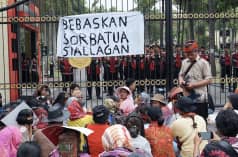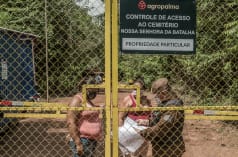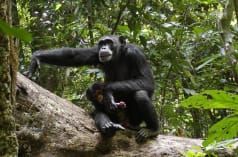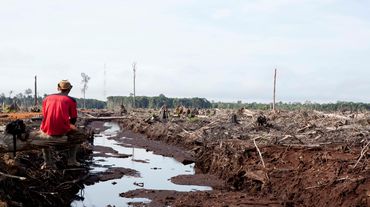Over 100,000 signatures for elephant conservation in Malaysia
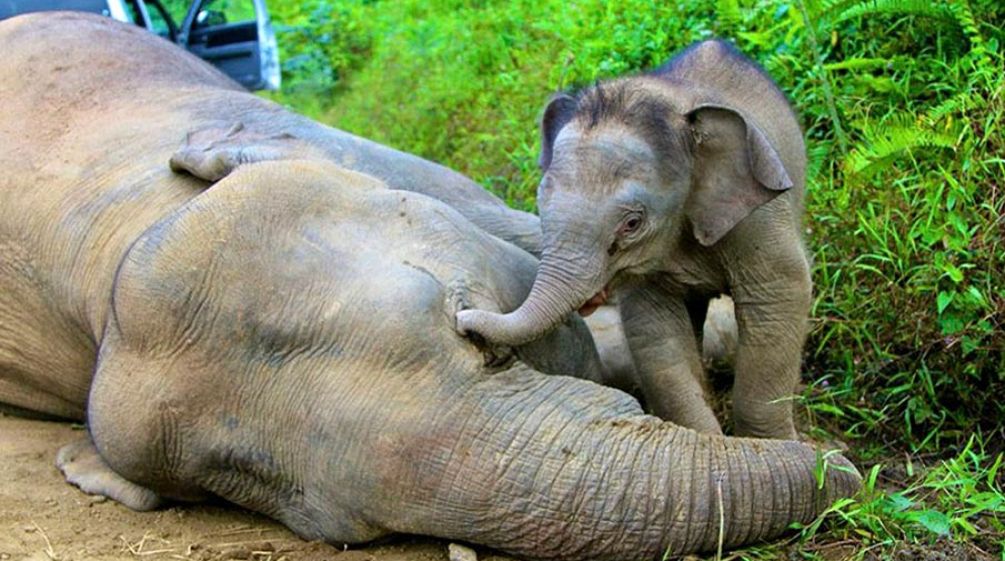 Photo: picture alliance / dpa (© picture alliance / dpa)
Photo: picture alliance / dpa (© picture alliance / dpa)
Mar 22, 2013
Earlier this year, the image of a tiny elephant calf trying in vain to awaken his dead mother with his trunk moved people around the world. The poisoning of 14 endangered Borneo pygmy elephants in the Malaysian state of Sabah met with incomprehension and indignation.
More than 100,000 people took part in our “Malaysia sacrifices its elephants for palm oil” campaign alone – more than ever before.
The protests are beginning to show results in the Southeast Asian country. The Forestry Director of Sabah took note of our campaign in Malaysian newspaper Daily Express: “[The images have] attracted so much global attention that even the Prime Minister and Chief Minister are receiving ‘blog petitions’ with close to 100,000 hits. Suddenly, Sabah is in the world map for the wrong reasons.” He noted that prestigious international publications are already calling for a boycott of palm oil from Sabah, and that it would take hard work to restore the state’s damaged reputation.
International support strengthens local environmentalists
While Indonesia’s destruction of rainforests for palm oil plantations has been in the headlines around the world for years, Malaysia has long escaped such scrutiny. Together, the two countries produce about 90 percent of the world’s palm oil.
Malaysia is now in the public eye and can no longer conceal its deforestation. Public attention from abroad is strengthening the bargaining position of local environmental organizations against the palm oil companies, which can no longer afford to simply ignore the demands of environmental groups and conservationists. On February 28, Sabah Chief Minister Musa Aman met with six environmental groups. The Borneo Post reported on the gathering in an article titled Govt keen to work on environmental protection with organisations.
The environmentalists’ central demand is for the protection of further forest areas of the state’s Yayasan Sabah concession. Chief Minister Aman was positive about the points raised and said that he wants to work on their implementation. It remains to be seen, however, whether this is a serious intention or mere campaign posturing. Elections will be held in June at the latest, and the political situation in Sabah is very tense. For the first time, the opposition has a realistic chance to win the elections.
The clearing of further rainforest areas must be stopped
To date, nearly two-thirds of the government’s Yayasan Sabah concession – around 600,000 hectares – has been assigned various protection categories. Once under protection, the complete clearance of the forest and the land’s conversion into palm oil plantations and the like should no longer be possible. Of the remaining 400,000 hectares, nearly 200,000 hectares have been planted with industrial monocultures, in particular oil palm and acacia, and another 200,000 hectares are set to follow.
For 30 years, the government-owned Yayasan Sabah Group run by Sabah Chief Minister Musa Aman has plundered the forests on the concession of the same name – an area of one million hectares. Almost all of the large rainforest trees there have been felled and exported worldwide as tropical hardwood. The supposedly sustainable tropical forest management was a fiction, while the business acted as a pure logging and clear-cutting operation. Musa Aman diverted millions of dollars from the group, depositing the money around the world – in the Swiss UBS bank and elsewhere.
Industrial plantations spread at the expense of forests
With its ruthless exploitation of the forest, the Yayasan Sabah Group has destroyed the basis of its own business. Now the group has gone into industrial oil palm and acacia plantations on a massive scale. Its subsidiaries have established around 135,000 hectares of oil palm monocultures alone on rainforest soil – Benta Wawasan Sdn Bhd: roughly 30,000 hectares, Sri Jaya Industri Sdn Bhd: 20,000 hectares, Asas Juta Sdn Bhd: 35,000 hectares, B. W. Plantations Sdn Bhd: 5,380 hectares, Jeroco Plantations Sdn Bhd: 14,000 hectares, and Sabah Softwoods Bhd: 25,000 hectares. Thousands of hectares more have been used for acacia monocultures.
According to the will of Musa Aman, a further 100,000 hectares of oil palms will be planted in the next three years. The government-run Yayasan Sabah Group that he heads is already clearing the rainforest for the new plantations. Not only are the Borneo pygmy elephants and thousands of other animal and plant species losing their habitat, they are apparently being decimated intentionally.
Wild animals decimated in favor of industrial plantations
The 14 dead pygmy elephants were found very close to the new clearings and existing oil palm plantations. “The elephants ate rat poison. That’s how the plantation workers prevent the animals from eating the fruit of the oil palm”, suspects Laurentius Ambu, director of the local conservation authority.
Moreover, it is an ongoing problem. Individual poisoned elephants are found frequently in the rainforest, yet they do not draw as much attention as the poisoning of an entire herd, as the Daily Express reports in Poisoning of elephants nothing new.
Critics are not welcome in Malaysia
Environmentalists complain that Malaysia appears to maintain blacklists of critical activists. Foreigners can expect immediate deportation if they openly criticize the palm oil industry and rainforest deforestation. Even an Australian senator was recently expelled.
Rainforest Rescue urges the Malaysian government to take criticism seriously instead of suppressing it. Not the frank words of citizens and environmentalists are damaging the country’s reputation, but the policy of rainforest destruction and the machinations of timber and plantation companies. These require the government’s scrutiny – not Malaysia’s concerned citizens.
